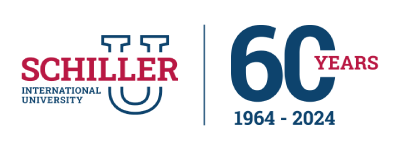In the ever-evolving landscape of tech and data, understanding the history and development of programming languages is crucial. Schiller International University is committed to equipping students for careers in tech and data fields, where the choice of programming language can significantly impact success.
The Birth of Assembly
The story of programming languages begins with assembly language, which is as close to the computer's binary code as you can get without writing ones and zeroes directly. While powerful, assembly is complex, with instructions tied to the computer's architecture. It's a challenging language, best suited for system-level programming.
The Rise of High-Level Languages
High-level languages brought a revolution in the tech industry. They abstracted many complex operations, making programming more accessible to a broader audience. Languages like Fortran, COBOL, and Pascal allowed for more readable and maintainable code, making software development more efficient.
Preparing for the Future
At Schiller International University, students are introduced to a variety of high-level languages as part of their tech and data programs. This equips them with the versatility needed to adapt to the evolving tech landscape, where new languages are constantly emerging.
The C Revolution
C, created in the 1970s, is a high-level language known for its power and efficiency. It became the foundation for many other languages and operating systems. The tech industry's growth was closely tied to C, as it made it easier to develop software across different platforms.
The Advent of Object-Oriented Programming
The advent of object-oriented programming (OOP) marked another milestone. Languages like C++, Java, and Python introduced OOP concepts, enhancing code modularity and reuse. This revolutionized the way tech professionals built complex software systems.
The Modern Age of Rust
Rust, a relatively new language, combines high-level abstractions with low-level performance and memory safety. It's increasingly popular in tech and data fields due to its ability to create safe, concurrent, and efficient systems.
Preparing for the Future
Schiller International University stays at the forefront of technological trends.
Our tech and data programs are designed to empower students with the knowledge and skills needed to succeed in dynamic and competitive fields.
These programs are structured to evolve with the industry, ensuring graduates are well-prepared for the demands of their future careers. Graduates of our programs are equipped with:
- A deep understanding of foundational languages such as assembly.
- Proficiency in popular languages like C, Python, and Java.
- The latest in-demand skills
- The versatility to adapt to changes in the tech landscape, thanks to a comprehensive curriculum.
- Real-world experience through internships, projects, and collaboration with industry experts.
Schiller International University is committed to fostering the next generation of tech and data professionals, ensuring they are ready to tackle the challenges of these dynamic and ever-evolving fields.

 Request information
Request information








